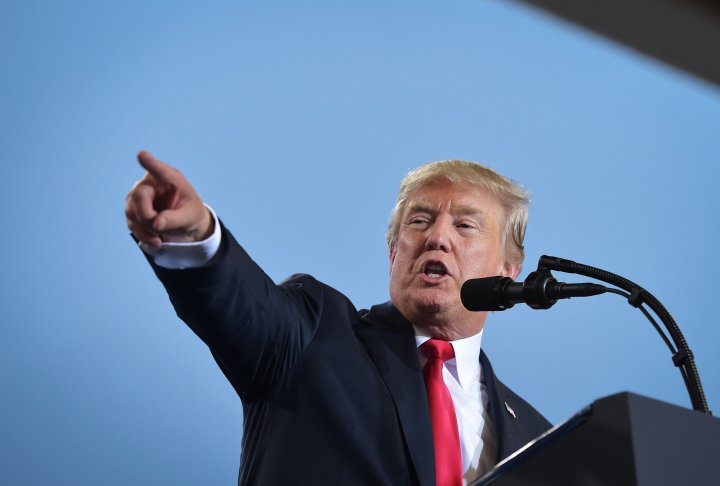Trump’s uncertain future
October 18, 2017 | Expert Insights

As controversies continue to escalate around US President Donald Trump, aides and members of his administration are worried about a possible impeachment.
Background
Impeachment in the United States is an enumerated power of the legislature that allows formal charges to be brought against a civil officer of government for crimes alleged to have been committed. This also includes the person elected to the highest office in the US – the President. Impeachment is referred to in the US constitution as: ‘The President, Vice President and all Civil Officers of the United States, shall be removed from Office on Impeachment for, and Conviction of, Treason, Bribery, or other high Crimes and Misdemeanors.’ Most impeachments have concerned alleged crimes committed while in office, though there have been a few cases in which Congress has impeached and convicted officials partly for prior crimes.
How impeachment works:
Impeachment process begins when someone part of the US House of Representatives presents a resolution calling for impeachment. A committee will investigate the accusations of misconduct. Whether or not there are actual grounds for impeachment is voted on. Based on the vote, Senate will hold an impeachment trial. Two-thirds of the Senate must vote in favor of conviction for the president to be removed.
If a President is impeached, then he/she would be removed from office. The Congress also has the power to disqualify the person from holding any future public offices as well. There are no appeals in this process.
Andrew Johnson and Bill Clinton
The first President who had to face a trial for impeachment in the US was Andrew Johnson. He was the 17th President who served from 1865 to 1869. He assumed office after the assassination of Abraham Lincoln. Johnson, who came to office as the Civil War concluded, favored quick restoration of the seceded states to the Union. His plans did not give protection to the former slaves, and he came into conflict with the Republican-dominated Congress. This resulted in his impeachment by the House of Representatives. He was acquitted in the Senate by one vote.
Bill Clinton was the 42nd President of the United States. He was embroiled in scandal after he was caught having an extramarital relationship with a White House employee – Monica Lewinsky. In 1998, he was impeached by the House of Representatives but was acquitted by the Senate.
Analysis

The Presidency of Donald Trump has been deeply polarizing. He has been accused of sexism and bigotry in the past. Trump has also employed extreme rhetoric and has insulted many of his critics in the past. A group of psychiatrists and mental illness experts have written a book titled the Dangerous Case of Donald Trump arguing that President Donald Trump may be dealing with a dangerous mental illness.
A brief look at President Trump’s controversies can be found here.
US intelligence agencies believe that Russia had interfered in the US presidential elections. In May 2017, the Department of Justice (DoJ) appointed Robert Mueller as a special counsel to oversee the investigation into the Russian interference and related matters. He is also investigating whether members of the Trump campaign colluded with Russia during the elections. Mueller has already has impaneled a grand jury as part of his investigations.
US Democratic Representative Brad Sherman was the first person to introduce the first formal article of impeachment against President Donald Trump in July 2017. Currently, Republican hold the majority in the US House of Representatives. However, this could change in the midterm elections slated to be held in 2018. All 435 seats in the United States House of Representatives and 33 of the 100 seats in the United States Senate will be contested. Trump’s future could significantly change if Democrats are voted into power.
A report by CNN notes that aides and senior members of the Trump administration are worried that Trump’s escalating feuds with members within his party could lead to his impeachment. Alex Conant, a partner at GOP public affairs firm Firehouse Strategies, said Trump should focus on protecting his own party. "The number one thing Trump should be doing to save his presidency is helping congressional Republicans maintain their majorities," Conant said. "Instead he's allowing his allies like Steve Bannon to really undermine Republican reelection campaigns. It's just reckless and politically naive considering how devastating it would be to his presidency."
Trump has fought with Senator Majority Leader Mitch McConnel (Republican), Senators John McCain and Bob Corker. There have been reports of him disagreeing with Paul Ryan, the Speaker of the House (Republican). He has also been criticized by Republican lawmakers such as Ben Sasse, Lindsey Graham, and Jeff Flake.
Steve Bannon, who is currently the managing the right-wing media news portal Brietbart has wielded considerable influence on the President. He was formerly Chief Strategist of the White House. He has been accused of furthering his agenda through his media house. Brietbart has openly mocked multiple Republican lawmakers such as John McCain.
There is also another way Trump could lose his power. If he alienates far too many Republicans, then they might invoke the 25th amendment (which is different from impeachment). Section 4 of the amendment provides that if the vice-president and a majority of the Cabinet declare a president is “unable to discharge the powers and duties of his office,” the vice-president immediately takes over as acting president.
Assessment
Our assessment is that it is time for Trump to put aside any differences and work alongside members of his own party, if he wants to further his agenda. If Democrats are able to gain majority in the House and the Senate in 2018, then Trump’s future is in question.








Comments